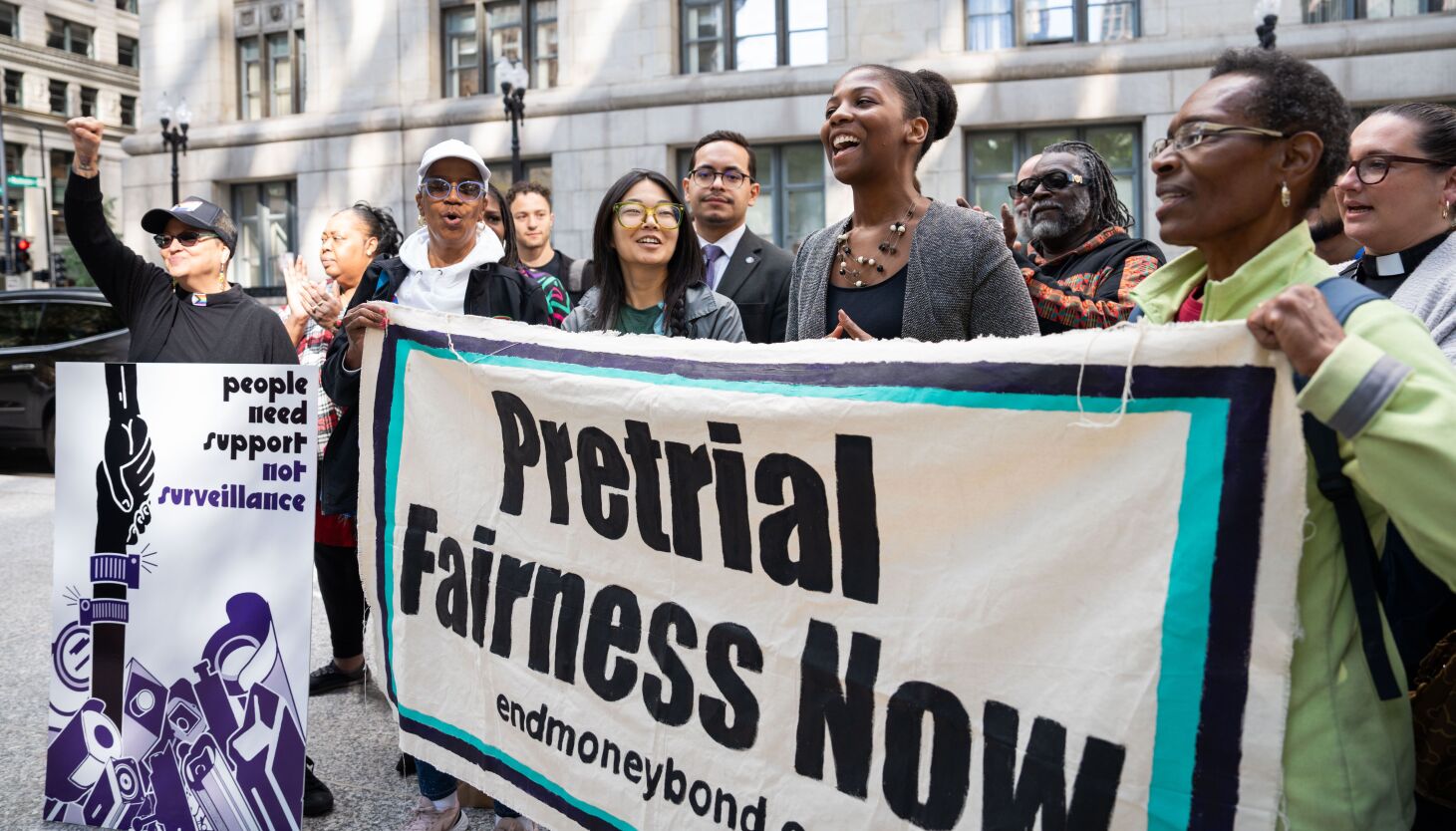Illinois became the first state in the nation Monday to completely remove cash bail as a condition to be released ahead of a criminal trial.
Here’s how the new system will work, with some questions still to be answered.
Who will not be jailed?
Under the new law, people charged with the state’s lowest level offenses will likely never set foot in a jail cell, including at a police station after their arrest.
People charged with an offense lower than a Class A misdemeanor — littering, some speeding charges and possession of marijuana over the legal limit — will likely be released with a citation and a court date without having to be processed at a police station.
What about more serious misdemeanors?
Class A misdemeanor offenses are slightly more serious, but still cover a lot of ground. They include shoplifting, simple battery, trespassing in a car or on property, possessing alcohol as a minor, and street racing.
A person facing a Class A misdemeanor will be arrested and taken to a police station for booking, but should be released with a future court date instead of being taken to jail.
The first question for authorities is whether, under the law, the offense allows the judge to jail someone. For example, a judge can detain a person accused of domestic violence, even when the person is charged with a misdemeanor.
In these cases, people usually face no more than six months in prison if convicted and often are released on probation without any incarceration.
However, law enforcement agencies will still be given discretion in certain cases. For example, if a person continues to commit the offense after being cited, they can be taken into custody and held until they appear before a judge, which must occur within 24 hours.
People can also be taken into custody if they can’t be properly identified, or if police believe a person poses a danger to the community or themselves. Police will have to explain their decision to hold the person.



I just had another thought. I wonder if it will eliminate a lot of escalation and fleeing due to people being afraid of going to jail?
I think in general people would have an easier time interacting with the system and just existing in proximity to it if the stakes weren’t so artificially raised.
Honestly, I’d argue that raising the stakes via the penal system as well as through things like corporate culture and work ethic have more to do with many of our problems than anything else. We’d probably be a lot better off if we took the time to try to teach people patience by not demanding constant impossible perfection and by giving them the room to exist.
So many people get so stressed about literally nothing. I’ll pick people up driving my cab and they’ll literally apologize for needing to be picked up or apologize for paying with cash or a card or a thousand other things. I spend more time reassuring people that everything is fine and it’s completely acceptable for them to call a taxi than nearly any other endlessly repeated interaction.
It’s not a big deal. We’re all going to die. Just take a second and let yourself enjoy your life instead of subjugating yourself to assholes and apologizing for it. Part of that is minding your own damn business and not locking people up for dumb shit.
We are all going to die. Thanks!